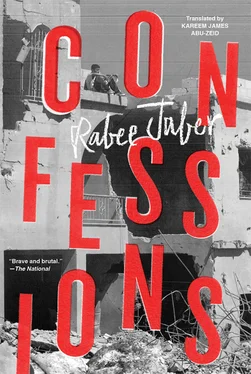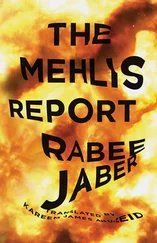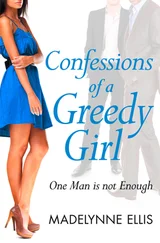But he is my father. Isn’t he my father? I remember when he hit Ilya with his cane. Ilya had been using the cane because of his wounded leg. He couldn’t walk without it. He was afraid he’d become a cripple. One of the doctors told him the likelihood of that happening was small, but that it was a remote possibility because of the piece of shrapnel still in his thigh. The piece had lodged in the bone and was in a tricky spot to get to: he could lose his leg if they tried to remove it and the operation failed. Ilya told me about his friend who’d lost a leg. I knew him, I often saw him with Ilya in Haghoub Manukian’s red Chevy, which Haghoub claimed he’d plundered from “the most important military leader in West Beirut,” but that car wasn’t from the war. Ilya frequently got together with his friend: they’d meet up at an underground casino or at a whorehouse or at the demarcation line (the story was different each time), and they played roulette. They played roulette or poker or hearts or seven and a half (the story was different each time). His friend was running through some land outside the village of Souk al-Gharb when he stepped on a mine. Did he step on it, or was it the person running beside him? Someone stepped on the mine and Ilya’s friend was launched through the air, and when he landed back on the ground he discovered he’d lost his leg. Then he passed out. He used to play soccer, Ilya said. And he said that’s what bothered him the most: he’d no longer be able to play. In the hospital, he’d stand on his crutches and jump on his one leg and ask for a ball so he could play in the corridor.
My father wasn’t angry about Ilya’s story, but he did get angry about the gold bracelets: Ilya had brought home some “spoils of war.” My father took the cane from him. He asked him for “the stick” and lifted it into the air. We didn’t know what he was doing, his voice didn’t change when he asked for the stick, and we couldn’t tell he was fuming inside. Then he brought it down hard on Ilya’s arm — as I tell you all this, I can almost hear it snapping against the bone — I can almost hear the snapping of the cane, and the venomous sentence that came out of his mouth: “You’re stealing, you son-of-a-bitch!”
We never saw any spoils of war in the house after that. That memory is linked to another one from the period following my mother’s passing. I was overcome with grief, and whenever the teacher asked me a question in class I was unable to reply — some kind of speechlessness came over me after her death. She died while I was sitting next to her on the bed. She was crying as she looked at me. I’ll never forget her face as she was dying. After that, I lost my appetite. I didn’t even drink any water. In class, I listened and I didn’t. I saw the letters and numbers on the board but didn’t know what they were. I heard the chalk, the awful scratching, the scraping. I heard the chalk break. I heard someone break a fingernail. I saw birds flying outside the classroom window. I saw a line of pine trees. I saw the yellow pollen rise up from the branches. I saw the dry pinecones fall onto the balcony and hop like squirrels before dropping onto the playground. I saw faces, and I didn’t. The winds blew, the rains fell. The clouds moved off and the weather cleared. I didn’t feel any of it. The wheel of the seasons turned, but I was outside all of it. I was hollow. The teacher would ask me a question and I’d say nothing, then I’d hear laughter (were they laughing? I’m not sure), and then silence once more. Later, I stopped going to school, though I left the house with my books like I did every morning. I took the sandwich Mary wrapped in red paper for me, but I didn’t go to school. I’d walk around the neighborhood, I’d take roads where the neighbors wouldn’t see me, and I’d go somewhere far away. Far away from what? Where did I go? I never paid attention to where I went. Once I found myself in a part of the city that was packed with shops: a strange place I’d never been to before. I heard a language I did and did not understand. I stood there a long time in confusion, then I remembered. The language came back to me, and I saw the signs above the shops. I stood there looking at the passersby, eating my sandwich. I can still remember what the sandwich was: oil and za’atar with cabbage.
The human mind is unfathomable — how can I remember that sandwich? Why did my mind hold onto that detail but get rid of all the others? I don’t remember, for example, what streets I took that day as I walked aimlessly from Sioufi to Burj Hammoud. I don’t remember them at all. Did I take al-Karam? Al-Tawaheen Street? How did I get to Burj Hammoud? I don’t remember. And why did Armenian sound like such an alien language to me? (We had Armenian neighbors in Sioufi. I had Armenian friends at school. I heard them talk all the time. I knew a lot of the words. Despite all that, I thought I was on another planet when I heard them speak that day.)
I stood there nibbling on my sandwich, holding my books under my arm, which were bound together by a large elastic strap (at school, you do away with your backpack once you get a bit older — backpacks are for the younger kids — and you wrap your books and notebooks together with an elastic strap… and when you’re older still, you do away with the books altogether and go to school with just a single notebook with a blue Bic pen in the spiral binding).
I stood in the labyrinth that was the Armenian quarter, I stood there in the din of the strange words and cars, in the middle of strange faces and buildings and stores, I stood there eating my sandwich with tears streaming down my face. I didn’t realize I was crying. A man approached and said my name. He looked right at me, and I couldn’t understand how he knew my name. His face was swimming, and the cars passing on the street were swimming too, and so were the electric lamps lighting up the signs of the shops and the goods in the windows. I looked at the man and waited for the tears to pass.
“You’re Felix’s son. What are you doing here?”
The man took me by the arm and led me into his store. He sat me down on a chair. The place was full of refrigerators. He opened up one of them and took out a pitcher of water. He poured me a cup and asked if I was okay. I thanked him for the water. I’d dried my eyes on my sleeve as he was taking the water out of the fridge. I’d dried my eyes as I was walking with him into the store. I was still trying to dry my eyes as I sat there on the chair, and when he poured me a cup of water and asked if I was okay, I thanked him for the water.
I thanked him for the water and said his name (I knew him, he lived by the Halw house, at the end of Sioufi Street — I knew him and he knew us). I also said I was late for school. Before I left his store (as I was leaving, as I was stepping across the threshold), he said: “Maroun, look after yourself, and look after your father, OK? I’ve always said it, your father Felix is a good man. He never gets his hands dirty. Felix is a good man.”
Did he say those words? Did he say something along those lines? I told you our minds are strange. One of the things I’ve always found hard to remember is the order of words. I remember images — why wouldn’t I remember them? Why would you forget anything you see in your life, anything at all? When you see it, it leaves an imprint in your mind, right? And since it’s been imprinted in your mind, it’s in there somewhere. It’s there in your head, right? In your memory, and if you look for it, you should be able to find it. I told you I don’t remember the streets I took that day from Sioufi to Burj Hammoud. But if I tried, if I really tried hard, wouldn’t I remember? Maybe I wouldn’t. That’s trickier than remembering a single image, for example the image of the washing machines and refrigerators in the store, and the pitcher of water being taken out of one the fridges. But that’s just one image. It’s not a series of images. Whereas the route from Sioufi to Burj Hammoud is a series, and is more prone to being forgotten. It’s harder to remember a whole series. But I think my trouble remembering is related to my state of mind that day: I was miserable, and although I was looking straight ahead, I couldn’t see a thing. That’s why I forgot which streets I took, that’s why I suddenly found myself in a strange place, listening to a strange language. I didn’t see what my eyes were seeing. That’s why I forgot.
Читать дальше












